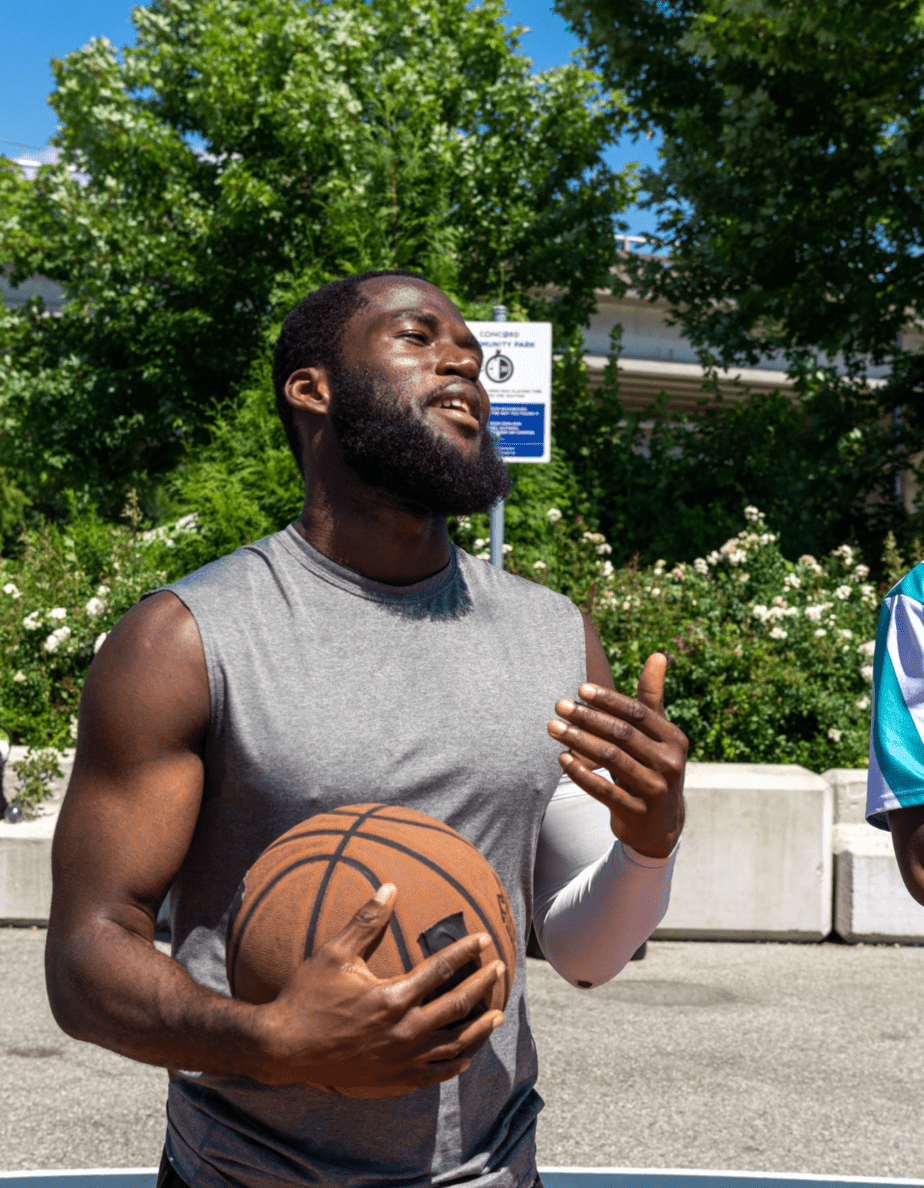Why Does Testosterone Make Effort Feel Good? Unraveling the Link Between Testosterone, Effort, and Reward
I watch the basketball clank off the rim. I am hanging around the 3-point line about 18 feet from the hoop keeping my defensive man out of the picture. I know that if I just take 3 steps toward the basket, I would be in a great position to get a long rebound or one fumbled by the defense. Do I do it? Nope. Do I wonder why 10 seconds later after it bounced exactly where I should have been if I wasn’t so lazy? Yes, and off I go to play defense at the other end of the court. The sequence in my old man noon basketball game made me think of Andrew Huberman, Ph.D. talk when he answers the question “Why Does Testosterone Make Effort Feel Good?”.
More specifically, he says that testosterone makes effort feel good which is becoming one of his more famous taglines.
Testosterone has some very interesting effects on the brain. The major mental effect of testosterone is it makes effort feel good, and the reason it does it is that the amygdala, this fear center, this anxiety center in the brain, has testosterone receptors.
Andrew Huberman, Ph.D.
Could this be the missing component of why I didn’t want to take those 3 extra steps and generally just play basketball lazier than I did 10 years ago? Lower testosterone equals less enjoyment of effort and equals me not going for as many rebounds as I used to. My testosterone levels, measured by bloodwork using the Insidetracker service, are considered OK (although SHBG is in the red) but do they need to be better?

I am going to answer the primary question in this post and then dig into whether it could be impacting me in a noticeable way and figure out some things I can about it.
Why Does Testosterone Make Effort Feel Good?
Dr. Huberman explains that, because of its ability to bind androgen receptors on the amygdala, a region associated with emotional processing, particularly emotions related to fear and stress, testosterone can reduce fear and pain, resulting in high-effort activities, such as intense physical training, becoming less unpleasant and far more rewarding.
If you’ve ever wondered why some people seem to enjoy pushing their physical and mental limits, part of the answer may lie with testosterone. This powerful hormone, often associated with virility and aggression, may also play a role in making effort feel enjoyable. Let’s delve deeper into the relationship between testosterone, effort, and reward.
The Neuroscience of Effort and Reward
Before we explore how testosterone comes into play, let’s briefly understand the neuroscience behind effort and reward. Our brains have a built-in system that motivates us to engage in activities that are beneficial to our survival and well-being. At the center of this system is a neurotransmitter called dopamine.
Dopamine is released in response to rewarding activities, creating a sense of pleasure and satisfaction. It’s the brain’s way of saying, “That was good, let’s do it again.” But dopamine is not just about reward – it’s also involved in anticipation of reward, motivating us to exert effort towards a goal.
Meanwhile, the amygdala, a small almond-shaped structure deep in the brain, plays a significant role in how we process emotions, including fear and anxiety.
Testosterone and the Amygdala: Facing Fear and Embracing Effort
Interestingly, the amygdala has receptors for androgens, including testosterone. When testosterone binds to these receptors, it can influence the amygdala’s activity. The result? A potential reduction in fear responses and an increased tolerance for stress. This may make us more willing to engage in high-effort activities that we might otherwise avoid due to fear or stress.
The Interplay of Testosterone, Dopamine, And Stress
Huberman also discusses the interplay between testosterone, dopamine, and stress, and the effects these have on our overall motivation and mood. His basic argument is that testosterone can make effort feel good and be enjoyable. This, he says, is the “holy grail” when effort feels good, life becomes better because we’re not fixated on the end result but rather enjoying the process.
Testosterone and dopamine have a dynamic relationship in our bodies. Testosterone can influence dopamine release in the brain, impacting our feelings of reward and motivation. This means that higher testosterone levels can lead to increased dopamine activity, which can enhance motivation to engage in high-effort activities and increase feelings of reward when doing so.
According to Huberman, the body uses cholesterol to create either cortisol (a stress hormone) or testosterone, but it can’t produce both at the same time. If a person is under stress, this could push the body to produce more cortisol and consequently less testosterone.
Practical Implications: Exercise, Motivation, and Mood
Understanding the links between testosterone, dopamine, and the amygdala, I can understand why testosterone plays an important role in our drive to exert effort. By influencing our dopamine pathways and managing our fear responses, testosterone may make high-effort activities feel less daunting and more rewarding.
Moreover, this connection might explain why individuals with higher testosterone levels are often more inclined to engage in strenuous physical activities, and why those with low testosterone levels may struggle with motivation, mood, and energy.

Conclusion: The Power of Testosterone in Making Effort Feel Good
So, why does testosterone make effort feel good? By enhancing dopamine activity, reducing fear and stress responses, and encouraging us to lean into challenges, testosterone turns effort into a rewarding experience. Understanding this can provide valuable insights into human motivation and behavior, and potentially pave the way for new approaches to improving mood, motivation, and overall well-being. Currently, I am doing Tiger Sprint workouts and Dr. Doug McGuff slow weight training to try and increase my levels.
What is the role of testosterone in the body?
Testosterone is a hormone primarily produced in the testes in men and in smaller amounts in the ovaries and adrenal glands in women. It plays a crucial role in regulating libido, muscle mass, bone density, and body fat distribution. Additionally, it influences mood, motivation, and mental health.
Why might individuals with higher testosterone levels be more inclined to engage in strenuous physical activities?
High testosterone levels can enhance dopamine activity, motivating us to exert effort towards a goal and increasing feelings of reward when doing so. Moreover, testosterone can reduce fear and stress responses, making us more willing to engage in high-effort activities that we might otherwise avoid.
What are the implications of low testosterone levels?
Low testosterone levels can lead to a range of symptoms, including fatigue, depression, and decreased sense of well-being. Physically, it may result in reduced muscle mass and strength, increased body fat, and reduced bone density. Individuals with low testosterone levels may also experience a decrease in motivation and drive.
Troy Wallace
Troy Wallace is Certified Basketball Speed Specialist and shares his experiences in trying to stay as healthy as possible to stay on the court. He is active in coaching youth basketball in YMCA, Team Work Sports Nebraska, and, currently, in the Jr. Warriors program in Omaha, NE. Visit Troy's Full Author Bio Page or email him directly.
Meaningful conversations happening daily about training, recovery, and injury-specific rehabilitation as well as sport-specific discussions on playing, coaching and refereeing your favorite sport. We welcome experts and those with curious minds seeking answers.
Join The Stay On The Court Community!